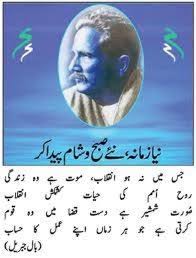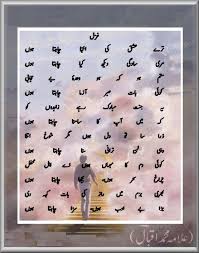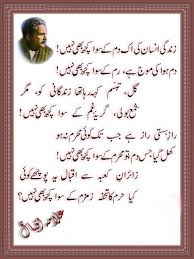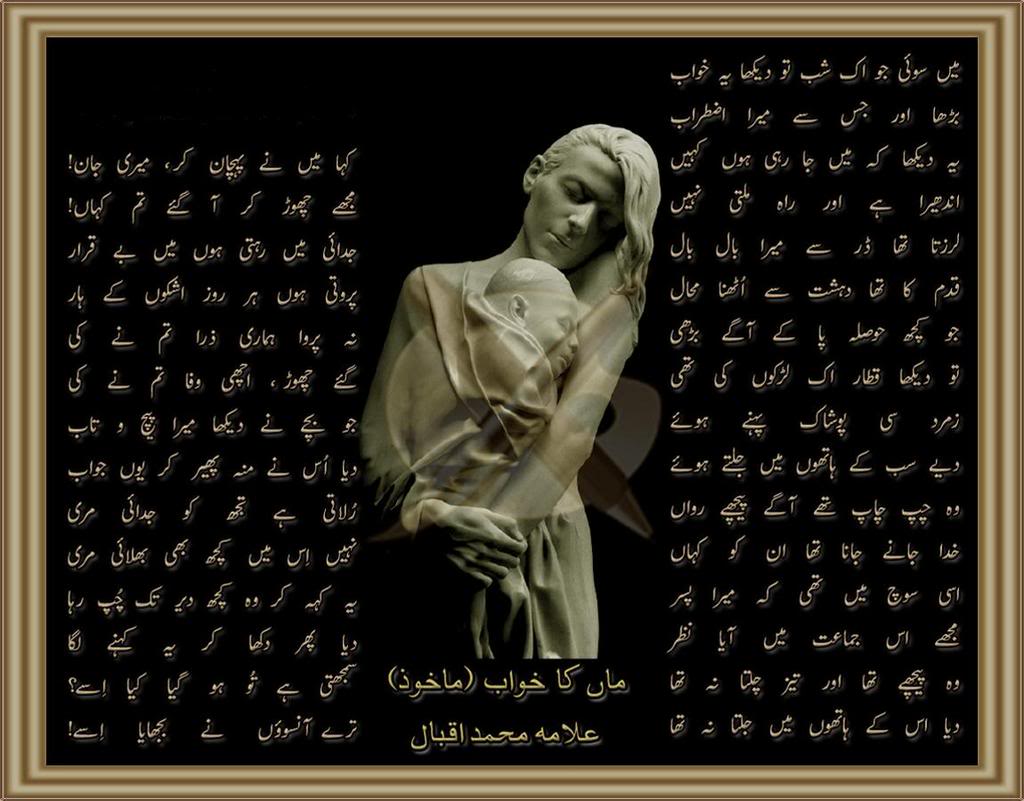Iqbal Urdu Poetry Biography
Source (google.com.pk)
Iqbal was born in Sialkot, within the Punjab Province of British India (now in Pakistan). Iqbal ancestors were kashmiri Pandits, the Brahmins from Kashmir who converted to Islam. In the 19th century, when Sikh were taking over rule of Kashmir, his grandfather's family migrated to Punjab. Iqbal often mentioned and reminisced about his Kashmiri Pandit Brahmin lineage in his writings.
Iqbal's father, Shaikh Noor Mohammad, was a tailor, not formally educated but a religious man. Iqbal's mother Imam Bibi was a polite and humble woman who helped the poor and solved the problems of neighbours. She died on November 9, 1914 in Sialkot. Iqbal loved his mother, and on her death he expressed his feelings of pathos in a poetic form elegy.
"Who would wait for me anxiously in my native place?
Who would display restlessness if my letter fails to arrive?
I will visit thy grave with this complaint:
Who will now think of me in midnight prayers?
All thy life thy love served me with devotion—
When I became fit to serve thee, thou hast departed."
When Iqbal was four years old, he was sent to the mosque to learn the Quran. Later, Syed Mir Hassan, the head of the Madrassa in Sialkot, became his teacher. Iqbal received the Faculty of Arts diploma from Scotch Mission College in 1895, where his teacher Hassan was the professor of Arabic. In the same year Iqbal married Karim Bibi, the daughter of a Gujrati physician Khan Bahadur Ata Muhammad Khan, through a first arranged marriage. They had daughter Miraj Begum and son Aftab Iqbal. Later Iqbal's second marriage was with Sardar Begum mother of Javid Iqbal and third marriage with Mukhtar Begum in December 1914.
During first marriage at the same time, Iqbal also began to study philosophy, English literature and Arabic in Lahore's Government college. He graduated cum laude with a Bachelor of Arts degree.
Iqbal's first work published in Urdu, the Bang-e-Dara (The Call of the Marching Bell) of 1924, was a collection of poetry written by him in three distinct phases of his life. The poems he wrote up to 1905, the year Iqbal left for England imbibe patriotism and imagery of landscape, and includes the Tarana-e-Hind (The Song of India), popularly known as Saare Jahan Se Achcha and another poem Tarana-e-Milli [Anthem of the (Muslim) Community], The second set of poems date from between 1905 and 1908 when Iqbal studied in Europe and dwell upon the nature of European society, which he emphasized had lost spiritual and religious values. This inspired Iqbal to write poems on the historical and cultural heritage of Islamic culture and Muslim people, not from an Indian but a global perspective. Iqbal urges the global community of Muslims, addressed as the Ummah to define personal, social and political existence by the values and teachings of Islam.
In 1933, after returning from a trip to Spain and Afghanistan, Iqbal began suffering from a mysterious throat illness. He spent his final years helping Chaudhry Niaz Ali Khan establish the Dar ul Islam Trust Institute at the latter's Jamalpur estate near Pathankot, an institution where studies in classical Islam and contemporary social science would be subsidised, and advocating the demand for an independent Muslim state. Iqbal ceased practising law in 1934 and he was granted pension by the Nawab of Bhopal. In his final years he frequently visited the Dargah of famous Sufi Hazrat Ali Hujwiri in Lahore for spiritual guidance. After suffering for months from his illness, Iqbal died in Lahore on 21 April 1938. His tomb is located in Hazuri Bagh, the enclosed garden between the entrance of the Badshahi Mosque and the Lahore Fort, and official guards are maintained there by the Government of Pakistan.
Iqbal is commemorated widely in Pakistan, where he is regarded as the ideological founder of the state. His Tarana-e-Hind is a song that is widely used in India as a patriotic song speaking of communal harmony. His birthday is annually commemorated in Pakistan as Iqbal Day, a national holiday. Iqbal is the namesake of many public institutions, including the Allama Iqbal Campus Punjab University in Lahore, the Allama Iqbal Medical College in Lahore, Iqbal Stadium in Faisalabad, Allama Iqbal Open University, the Allama Iqbal International Airport in Lahore, and Gulshan-e-Iqbal Town in Karachi. Government and public organizations have sponsored the establishment of colleges and schools dedicated to Iqbal, and have established the Iqbal Academy to research, teach and preserve the works, literature and philosophy of Iqbal. Allama Iqbal Stamps Society established for the promotion of Iqbaliyat in philately and in other hobbies. His son Javid Iqbal has served as a justice on the Supreme Court of Pakistan. Javaid Manzil was the last residence of Allama Iqbal.
Tehni Pe Kisi Shajar Ki Tanha
Bulbul Tha Koi Udaas Betha
Kehta Tha Ke Raat Sar Pe Aai
Urney Chugney Mai Din Guzara
Pohchun Kis Tarah Aashiyaan Tak
Har Cheez Pe Chaa Gaya Andhera
Sun Ke Bulbul Ki Aah-O-Zaari
Jugnu Koi Paas Hi Se Bola
Hazir Hun Madad Ko Jaan-O-Dil Se
Keera Hun Agarcha Mai Zara Sa
Kiya Gham Hai Jo Raat Hai Andheri
Mai Raah Mai Roshni Karonga
ALLAH Ne Di Hai Mujh Ko Mashal
Chamka Ke Mujhe Diya Banaya
Hain Log Wohi Jahan Mai Ache
Aate Hain Jo Kaam Dosron Ke
(Allama Iqbal)
Iqbal Urdu Poetry


Iqbal Urdu Poetry

Iqbal Urdu Poetry

Iqbal Urdu Poetry

Iqbal Urdu Poetry

Iqbal Urdu Poetry


Iqbal Urdu Poetry


Iqbal Urdu Poetry


Iqbal Urdu Poetry


Iqbal Urdu Poetry


Iqbal Urdu Poetry
No comments:
Post a Comment